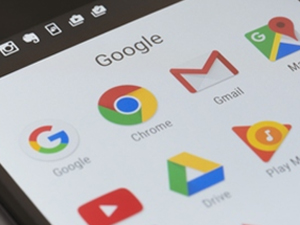



Date:02/06/17
 Google today said that its machine learning models can now detect spam and phishing messages with 99.9 percent accuracy.
Google today said that its machine learning models can now detect spam and phishing messages with 99.9 percent accuracy.
While this still means that one out of a thousand messages gets through (so Barrister Jon Price still has a decent chance of getting to inform you of that random online lottery winning of £552,000,00 you weren’t expecting), the company argues that this is a pretty good number. And I guess that’s true, given that according to Google’s own data, 50-70 percent of messages that Gmail receives are spam. These detection models also integrate with the Google Safe Browsing tools for detecting links to malicious URLs.
To further improve its phishing-detection performance, Google also built a system that delays some Gmail messages for a little bit longer to perform more detailed phishing analysis. Because phishing attempts are more easily detected when you look at them in aggregate, Google will delay some of these suspicious messages to perform a deeper analysis as more data comes in overtime and as its algorithms update in real time. This should only apply to about 0.05 percent of messages, though.
Another new feature Google is bringing to Gmail is mostly meant to help businesses protect their data. Now, if you reply to an external email from somebody with whom you don’t regularly communicate, Google will show you a warning that asks you if you really intended to send this email. For enterprises, Google already offers a sophisticated set of filters that try to prevent this kind of unintended (and occasionally intended) data sharing, but for companies that don’t want to set this up, this new system offers at least some basic protections.
Last but not least, Google is also now adding new click-time warnings that will notify users when they are about to click on a malicious link that could lead to a malware site.
Google says its machine learning tech now blocks 99.9% of Gmail spam and phishing messages
 Google today said that its machine learning models can now detect spam and phishing messages with 99.9 percent accuracy.
Google today said that its machine learning models can now detect spam and phishing messages with 99.9 percent accuracy.While this still means that one out of a thousand messages gets through (so Barrister Jon Price still has a decent chance of getting to inform you of that random online lottery winning of £552,000,00 you weren’t expecting), the company argues that this is a pretty good number. And I guess that’s true, given that according to Google’s own data, 50-70 percent of messages that Gmail receives are spam. These detection models also integrate with the Google Safe Browsing tools for detecting links to malicious URLs.
To further improve its phishing-detection performance, Google also built a system that delays some Gmail messages for a little bit longer to perform more detailed phishing analysis. Because phishing attempts are more easily detected when you look at them in aggregate, Google will delay some of these suspicious messages to perform a deeper analysis as more data comes in overtime and as its algorithms update in real time. This should only apply to about 0.05 percent of messages, though.
Another new feature Google is bringing to Gmail is mostly meant to help businesses protect their data. Now, if you reply to an external email from somebody with whom you don’t regularly communicate, Google will show you a warning that asks you if you really intended to send this email. For enterprises, Google already offers a sophisticated set of filters that try to prevent this kind of unintended (and occasionally intended) data sharing, but for companies that don’t want to set this up, this new system offers at least some basic protections.
Last but not least, Google is also now adding new click-time warnings that will notify users when they are about to click on a malicious link that could lead to a malware site.
Views: 449
©ictnews.az. All rights reserved.Similar news
- Cellphone Use May Raise Cancer Risk
- Australian police pushes cyber safety education
- Vietnam aims to lead in e-government
- Senate Website Gets Hacked
- US builds net for cyber war games
- Japan enacts anti-computer virus law
- India passes law vs e-waste
- Anonymous Declares War On The City Of Orlando
- Microsoft highlights evolving dangers as online identity data proliferates
- Consumers want internet security to be provided by banks
- Government facilities targets of cyber attack
- South Korean web attacks might been war drill
- Sri Lanka to Establish National Passport Database to Increase Border Security
- Hi-tech crime agencies set to employ information security professionals
- Phone hacking and online campaign bring down the News of the World





















